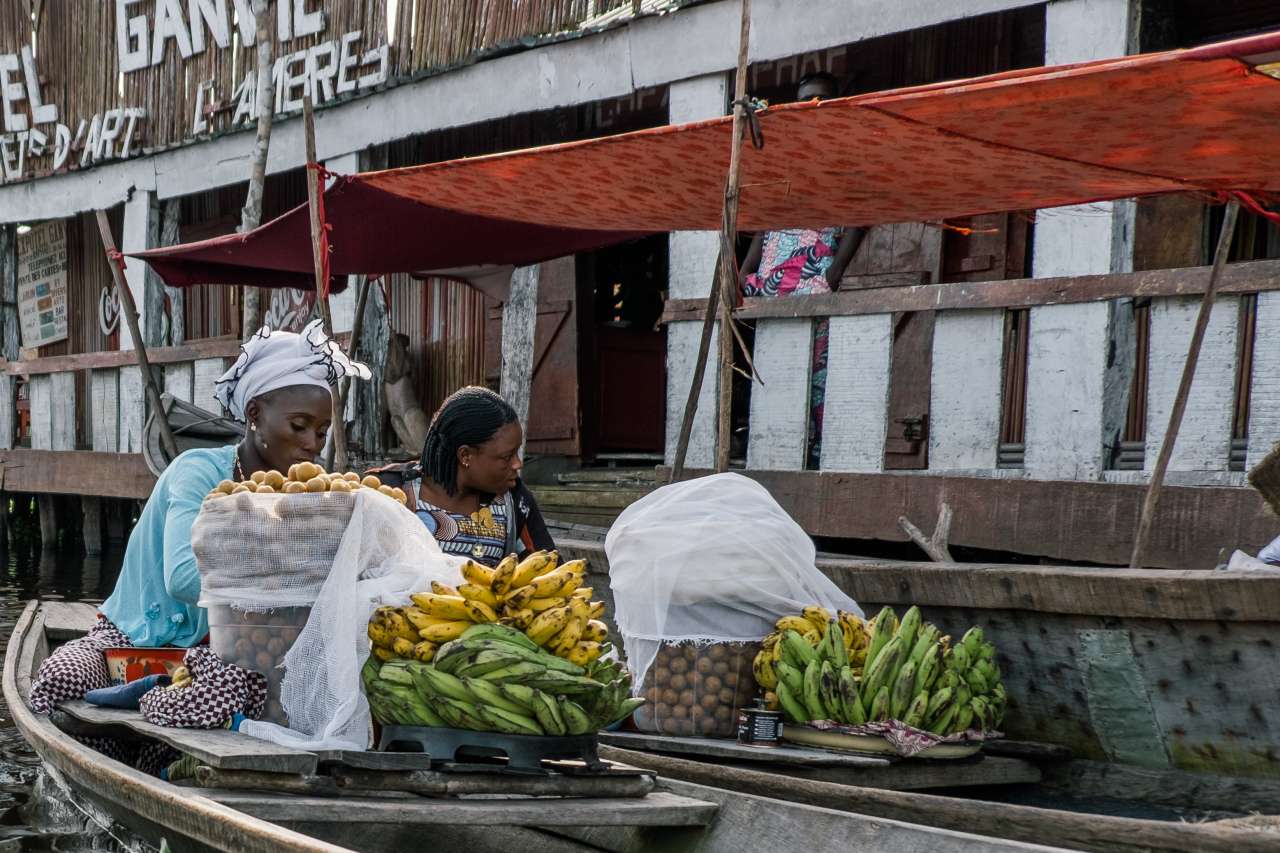Division of Food Production and Society
HealthyFoodAfrica

End: dec 2025
Start: jun 2020
Improving access to nutritious food is a systemic challenge. In order to foster healthier diets, it is necessary to go beyond expanding the diversity of products on the supply side, or raising awareness on the demand side. HealthyFoodAfrica aims to increase the resilience of food systems, and to link food production to nutrition performance, thereby increasing the range and quality of food products for a healthy diet. To achieve this, it engages with farmers, food processors, retailers, civil society organisations (CSOs), policymakers and local experts, and helps them create, and test, innovative technologies, practices and governance arrangements that contribute to a more sustainable, resilient and healthy food system for all.
| External project link | Healthy Food Africa website |
| Start - end date | 01.06.2020 - 31.12.2025 |
| Project manager | Dr. Mila Sell, LUKE Finland |
| Project manager at Nibio | Sekhar Udaya Nagothu |
| Division | Division of Food Production and Society |
| Department | Hydrology and Water Environment |
| Partners | Luonnonvarakeskus (LUKE) (FI), International plant genetic resources institute (IPGRI) (IT), Council for Scientific and Industrial Research (GH), African population & health research centre Kenya (KE), NIBIO – Norwegian Institute of Bioeconomy Research (NO) , Helsingin Yliopisto (FI), Bahir Dar University (ET), Makerere University (UG), University of Zambia (ZM), Universita di Pisa (IT), Universite d'abomey-calavi (BJ), Stichting aeres groep (NL), Stichting HIVOS - Humanist Institute for Cooperation with Developing Countries (NL), Kirkon Ulkomaanapu sr (FI), Northern Region Farmers Association (GH), Mentes Visíveis, LDA (PT), Böna Factory Limited (KE) |
| Funding source | EU Horizon 2020 |
HealthyFoodAfrica applies an adaptive whole systems approach to transforming local food systems – from individual dietary norms to food supply and access, from new sustainable technologies and practices to wider policy frameworks and business models.
The project is action-oriented, and builds on existing networks and initiatives in Africa, facilitating a structured process to experimentation and scaling-up of new approaches by local actors in the food system through a Food System Lab structure and methodology.
HealthyFoodAfrica promotes innovation in supply chain governance, food products and technologies, as well as supporting educational approaches, capacity building and food policy development. The knowledge created in the project will enrich both African and European partners and will allow cross-scale action within the 10 cities hosting the food labs and beyond.
What will HealthyFoodAfrica do to achieve the desired impacts?
- Create 10 Food System Labs in 10 cities and 6 countries in Eastern, Western and Southern Africa (Ghana, Benin, Ethiopia, Uganda, Kenya & Zambia). Each lab will bring together local stakeholders – farmers, entrepreneurs, businesses, and policymakers.
- With the support of local and European experts, labs will tackle particular locally relevant food system challenges, from consumer awareness to sustainable production, local food diversity, improved post-harvest technologies and food safety.
- HealthyFoodAfrica will connect actors from across the supply chain for joint actions to achieve viable transformations in municipal, regional, national and cross-national food systems, connecting consumers and producers, urban and rural dwellers, and local initiatives across Africa.
How is HealthyFoodAfrica implemented?
- Each of the 10 Food System Labs will focus on parts of the local food system that require action and that have the potential to generate the nutritional and health impacts, as well as providing a significant learning potential.
- The labs will serve as a deliberative space which allows researchers, practitioners and policymakers to develop lasting relations, common understanding and innovations that will go on beyond the timeframe of the project.
- Practice partners will cooperate with scientific partners to elaborate and test food system innovations. Five thematic Workpackages encompass the central components in every food system: Nutrition and consumption, Sustainable production, Postharvest technology and food safety, Agri-food chain governance, and Innovative foods products and processes. The related cross-cutting analyses will enhance the knowledge which can be used by researchers, policymakers and entrepreneurs to better understand the transformations that occurred and apply it elsewhere.
Main outputs, outcome and impacts of HealthyFoodAfrica
- 10 Food System Labs in six countries established/strengthened (1-2 per country).
- At least 10 innovations in food production systems (incl. crop production, fishing and aquaculture, livestock and integrated farming systems) fully deployed.
- A minimum of 7-8 pilot actions on equitable food supply chain governance validated and upscaled.
- A minimum of 3 novel food products for local consumption and export piloted.
- 30 experts trained on application of an adaptive systems approach to food system transformation.
- Training material elaborated; about 1,200 advisors, developers and facilitators reached in the 6 countries.
- Education material on healthy nutrition elaborated; about 150,000 target audience reached in the 10 cities.
Publications in the project
Authors
Hilde Margrethe HelgesenAbstract
No abstract has been registered
